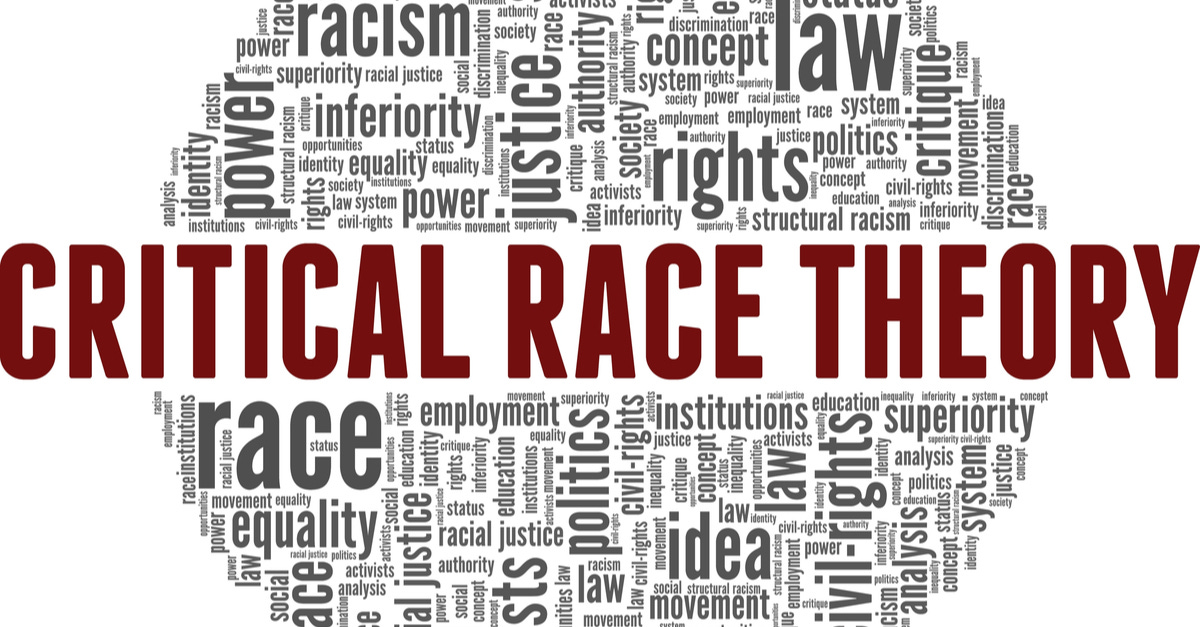E-Pluribus | August 30, 2021
An Orwell book prize saga; CRT, education and the states; and Kristi Noem responds to a call for a ban on mandates.
A round up of the latest and best writing and musings on the rise of illiberalism in the public discourse:
John Lloyd: Inflammatory Anti-Racism
As if 2020 wasn’t dystopian enough, last year also saw a free speech controversy related to, of all things, a book prize awarded by the Orwell Foundation (yes, *that* Orwell). At Quillette, John Floyd tells the story of the author involved, Kate Clanchy, and what she has been subjected to as a result of a social media campaign against her.
The serious part of this is the all-out attack pursued against Clanchy on social media for the most minor of slights. This behaviour is now baked into the operation of social media, which provides a painless method of inflicting great reputational pain. More, it has persuaded those who have done nothing wrong that the only way to stop the attacks is to deliver the most abject apologies for something that requires no apology at all. It’s easy to sympathise with Kate Clanchy: she just wanted it all to go away. Picador, like many publishers, also panicked and covered its corporate head with ashes in the hope that its tormentors would leave it alone.
[…]
Suleyman, Janesh, and Singh have claimed a general right to be spared offence—not merely on their own behalves, but on behalf of all people of colour. And upon what basis? How can they possibly know if Clanchy’s mild and generally affectionate comments strike all men and women of colour as nothing more than racial insults and the savage mockery of autistic children? They are simply writers and commentators speaking for themselves and pursuing their own grand ideas and narratives at the expense of another's reputation.
It’s the sheer volume and vehemence of sweeping claims like these that demand we take them seriously, even though they are patently unserious. The high tide of white supremacy occurred in the European colonies occupied from the 18th to the early 20th century. In the United States, racism still casts a particularly poignant shadow since the crime was exacerbated by the concomitant proclamation that “all men are created equal”—an indignity for slaves on top of the physical cruelties they suffered. Liberation was followed by a century and a half in which, most obviously in the American South, an effective apartheid ruled, more than a little of that slopped into the North, and some remains.
[…]
Societies, if well and liberally governed, can deepen acceptance of religious and ethnic differences, but only so long as minorities and those among the elites who claim to represent them make this their aim and their practice. A lasting diminution of racism rises from millions of everyday interactions—at work, at leisure, in schools and colleges, in religion, in cultural pursuits, in political activity and debate. Racism and prejudice will never entirely disappear, but it can be diminished and held in contempt by the large majority.
Read it all.
William A. Jacobson: Pushback on Critical Race Theory Starts with the States
William Jacobson of Legal Insurrection fame writes at National Review about the appropriate avenue for addressing Critical Race Theory in education: the states. Jacobson cautions against rushing responses, reminding readers (including legislators) that reforming education is a “marathon, not a sprint,” and some perhaps good intentioned but hasty actions will not solve anything in the long run.
Lawmakers must decide how they will address this outcry. Some states have attempted banning the teaching of critical race theory in higher education, inviting legal losses over free-speech protections in academia. States that want to succeed in enacting laws that actually thwart the rise of critical race theory and its adjacent philosophies must consider legal remedies that are both productive and constitutionally sound.
Governors and state legislators should employ a strategy that first acknowledges that the struggle to restore educational sanity is a marathon, not a sprint. Progressives have spent generations corrupting the education system with anti-American and anti-capitalist curricula. Because these systems are so interwoven and complex, a meaningful reversal will take time. So, lawmakers must start now and prepare to stay the course.
Read it all here.
Robby Soave: Kristi Noem Is Right About Employer Vaccine Mandates
Mandates, being mandates, are rightly controversial and worthy of debate, and the debates revolving around COVID vaccines are no different. The enforcer of such mandates, however, is certainly a significant factor. Libertarian Robby Soave writing at Reason explains why the rights of business owners trump politicians attempts to shield their constituents from such requirements.
Two Republican state legislators in South Dakota have proposed a similar ban on private vaccine mandates. The COVID-19 Vaccine Freedom of Conscious Act, authored by Reps. Jon Hansen and Scott Odenbach, would effectively stop all businesses from requiring vaccination. But unlike DeSantis and Gianforte, South Dakota Gov. Kristi Noem (R) is opposing the ban on private vaccine passports on grounds that the government does not and should not have the right to bully businesses.
"I don't have the authority as governor to tell them what to do," said Noem. "Since the start of this pandemic, I have remained focused on what my authorities are and what they are not. Now South Dakota is in a strong position because I didn't overstep my authority. I didn't trample on the rights of our people, and I'm not going to start now."
Noem's stance will probably attract derision from some on the vaccine-skeptical populist right; indeed, Noem has a history of being painted as insufficiently conservative because she was unwilling to use state power to enforce a conservative cultural agenda when she thought it wouldn't hold up in court. But the governor is absolutely right to stick to her guns here—and in fact, it's the Republican officials racing to prohibit private vaccine mandates who are violating clear-cut conservative principles.
Noem explained this quite aptly in a brief speech outlining her position.
"When leaders overstep their authority, that is how we break this country, and if government starts acting unconstitutionally, even if it's doing something that we like, that's a dangerous path to walk down," she said. "It is not conservative to grow government and to tell businesses what to do and how to treat their employees."
Read the whole thing.
Around Twitter:
Via Thomas Chatterton Williams, perhaps sometimes the students can teach the schools something:
Via the Foundation Against Intolerance & Racism, how the diversity and inclusion industry can perpetuate
Batya Ungar-Sargon comments on a teacher’s union official appearing to elevate children’s social awareness over actual learning:
And finally, via Katie Herzog… [insert embarrassed face emoji here]:












